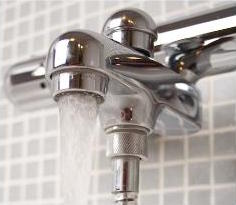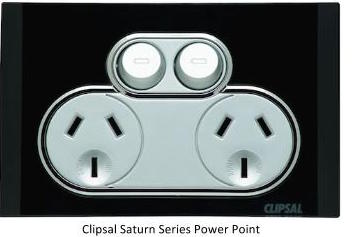Electrical Safety Tips for the Home
You can never be too safe when it comes to electricity. There are many ways that electrical items in your home can become unsafe, and it is best to know how to recognise these risks and avoid them where possible.
The following list of tips can help to keep you and your family safe in your home, as well as keep your electrical devices at a high standard of performance.
- Dry your hands thoroughly before touching any switch, powerpoint, appliance, or anything else that is in contact with electricity.

- Replace appliances and cables that have frayed cords, broken plugs, or any other issues.
- Always get a licensed electrician to do wiring jobs, or to fix appliances - no matter how small or easy the job might seem. Be especially careful about using electrical appliances or cables in areas that may become wet - e.g. bathroom, kitchen, laundry, pool
- Make sure you use light bulbs with the correct wattage for the fixture - higher wattages will cause overheating.
- Screw in all light bulbs properly so they aren’t loose, as they could become dangerous if not screwed in right.
- Turn off the fixture and unplug if possible before unscrewing a light bulb.
- If a bulb breaks, take extreme care in cleaning up, and make sure to follow guidelines for safe disposal of broken bulbs - fluorescents bulbs most of all.
- Don’t force a plug into a socket if it won’t fit easily - find a socket or plug that will fit.
- Don’t overload powerpoints by “piggybacking” double adaptors or power boards on top of one another - either use a power board instead of a double adaptor, find a free powerpoint, or have more outlets installed.
- Run extension cords around the edge of a room and over doorways, rather than across doorways and under rugs etc. - and make sure windows and doors don’t close on cords - as this can pose a big safety risk.
- Keep electrical cords kept out of sight and out of reach in rooms children and pets will be in - they can accidentally pull or damage the cords.
- Check that second-hand electrical items are safe before use - if you aren’t certain of its safety, have a licensed electrician take a look at it.
- Don’t spray household cleaners etc. on electrical accessories to clean them - this can damage them.
- Turn off and unplug the toaster when trying to remove stuck food, and remember to clean out crumbs regularly.
 Keep exhaust fans clean of dust and dirt.
Keep exhaust fans clean of dust and dirt.
- Turn off powerpoints when they are not in use.
- If you have kids, make sure to put childproof plugs into outlets to stop them being able to poke things into the holes.
- Unplug appliances from the powerpoint by pulling on the plug itself, not the cord.
- Make sure appliances have space around them so they don’t overheat.
- Clean appliances regularly - especially kitchen appliances - with a damp, but not dripping, cloth. Always turn off and unplug them first.
- There are some things in a house you can do yourself, and some you shouldn’t. These are what you can do yourself:
- change an electric light bulb
- change the starter in a fluorescent light fitting
- replace a fuse
- reset a circuit breaker or safety switch
- These are what you shouldn’t do yourself:
- replace or rewire a plug, switch, or powerpoint
- repair electrical appliances (e.g. irons, toasters, etc.)
- install or alter fixed electrical wiring
Electricity is never something to play with, so don’t take any risks when it comes to safety in your home. These electrical safety tips will help you and your family to get the best out of your electrical items, and in a safe manner.
Always remember that if something seems a bit dodgy or damaged, get a licensed electrician to take a look - don’t risk a DIY job or leave it to get worse.


